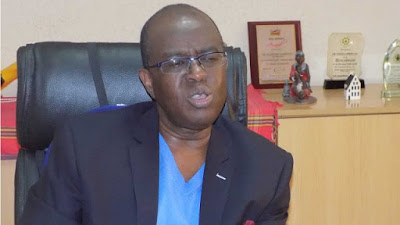With 13 immediate past ministers, 10 ex-governors, and six former lawmakers making it into the new Federal Executive Council of the Federation, there has been a cacophony of dissenting voices trailing the announcement.
Aside the returnees that made the list, there are nine Lawyers, seven women, five Engineers, five persons above 70 years, another five are over 50, three medical doctors, three senior advocates of Nigeria (SANs), two former deputy governors, one former Secretary to State Government, one accountant, and one economist were equally on the list.
However, youths were conspicuously missing on the list, if the definition of youths in Nigeria, which is persons between 18 and 35 years old, is still valid. The youngest person on the list is a woman of 43 years old.
The immediate past Director-General of Nigeria Employers Consultative Association (NECA), Olusegun Oshinowo, observed that as valid as the calls for the inclusion of youths and more women is, Nigeria’s dire economic, political and social situations call for the appointment of competent hands.
He said: “Non-inclusion of youths and women are variables that are very important, but I won’t pander to them completely. The stage and position we are in this country is such that we need to look for our best hands wherever they are irrespective of gender, age, political leaning, religious beliefs, and other considerations to pilot the affairs of our country.”
Oshinowo insisted that merit and competence should drive appointments into public office, adding that the list does not inspire confidence, also berated the National Assembly for not embarking on comprehensive screening of the nominees thereby denying Nigerians a unique opportunity to appraise the competence of the appointees.
He further argued that: “There should have been a basic qualification for appointment. What were the scorecards of the former governors that were nominated? What were the scorecards of the former Ministers? I am not sure Mr President took cognizance of these parameters. It is clear that some of the names that were on the list did not give their best performance to the people of the states where they were governors. So, if they could not give their best to the people of their states, why should we expect anything better at the national level?”
He continued: “Also, there are some nominees that have questions over their names and characters. Some have cases with the EFCC. For a President whose mantra is to fight corruption, some of us are wondering how some of those names got into the list. These are the key issues. By the time all these are put together, it might not be hasty to conclude that we cannot expect outstanding performance from the ministerial nominees.”
Oshinowo noted that there were no notable names that have the knowledge to turn the economy around, saying, “I cannot see anybody that is rooted in economic issues. I cannot see anyone with the pedigree of Charles Soludo, Dr Ngozi Okonjo-Iweala and Wale Edun. There are no technocrats of note on the list. Yes, there a few names that one is hopeful no doubt, but I don’t want to be extremely personal about it. But, all in all, I am not too enthused about the composition of that team.”
For a former President of the Trade Union Congress (TUC), Peter Esele, the list is a mixed bag, and described the absence of youth as a “let down”, and called for the re-introduction of political activities in the universities to serve as breeding ground for youths’ participation in politics. He said: “I also think that the way youths are being positioned, they may never have the opportunity to lead. The society has to play a big role in ensuring youth occupy political office.
If they don’t have political leadership experiences between 25 and 30, when are they going to have it? For youth to be involved in the political governance of the country there must be a process that integrates youth early in the political block of the country. Part of the problem here is that there is no template for growth unlike what is obtainable in the developed countries.

No comments:
Post a Comment